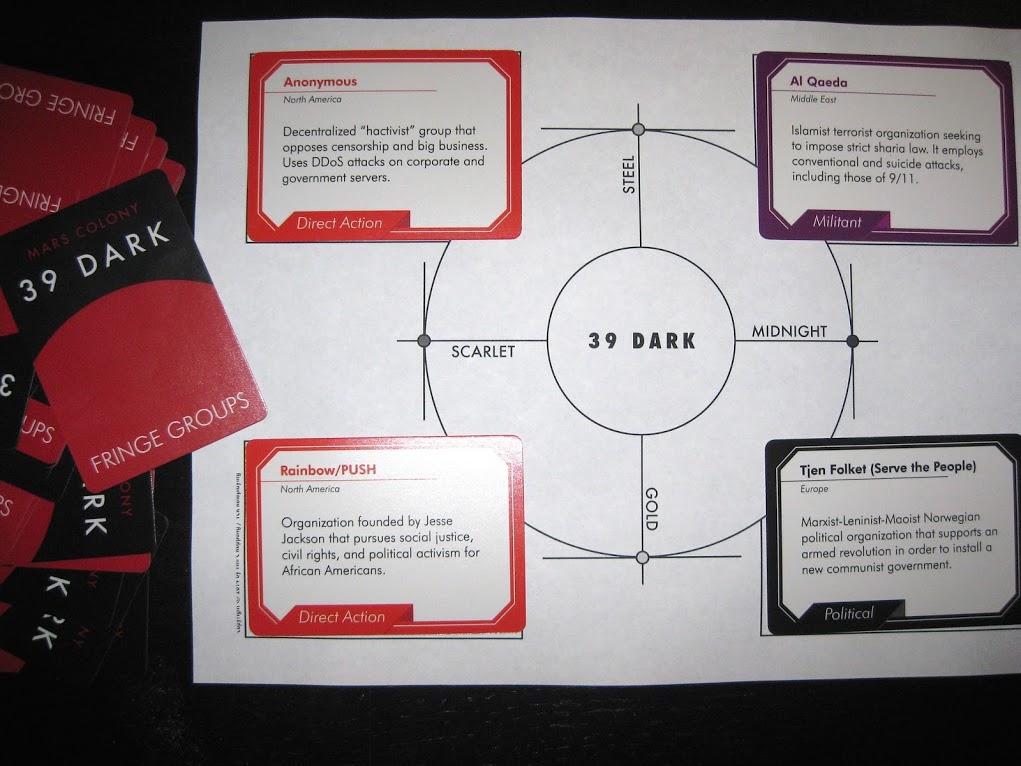A few months back I made available a small game titled Last Thanksgiving. It was a personal project, and proof of concept, but it also stuck with me. I’ve been sort of stalled on my latest design project. Nothing was coming together in the way I wanted it to. What I’ve come to realize is that, in designing a bare-bones game, Last Thanksgiving, what I was actually doing was subconsciously working past my designer’s block. You see, I’m a theme first type of guy. Hero’s Banner didn’t come into focus until I had a theme. Same with Mars Colony and 39 Dark. Every single time I come up with an interesting mechanic or provocative setting first, I start designing — but end up designing myself into a corner because the game has no soul. It’s not until I get a strong handle on what I want to say with a game that I can really make progress. For my latest project, that theme is becoming clear, and that theme is memory.
Specifically, something that has been on my mind of late is the notion of memory loss. (And now we’re getting personal, watch out!) My grandfather suffered from Alzheimer’s disease before passing away. I watched my two grandmothers suffer from memory loss in their old age as well. At the same time, as I age, the notion of reliving past events through memory is becoming more relevant while at the same time more fraught. Not all the memories are good ones, and, good or bad, I wonder if I can really trust those memories as “accurate.” This is tied up with my study of memoirs (see especially Alison Bechdel’s Fun Home), and the way an author fixes a memory in time by writing it down in a particular way as a story. Hell, I’m sure even Roy Batty’s last words in Bladerunner are serving as inspiration.

My point is that all these thoughts about the value and peril of memory are rattling around in my brain, and I’m looking for a way to say something about it all. Enter my latest project. Both Last Thanksgiving (now revised) and the brand new extension, Lost Thanksgiving, tackle the theme of memory in a hyper-focused, two-player format. The players are presented with a limited situation that seems simple at first, but hopefully expands into something larger. This isn’t a “big” game, but it is a personal game (both for me and for anyone who plays it). The main character could be an elderly grandparent in a contemporary drama or a young protagonist in a sci-fi/horror story. The choice is yours, but the theme remains: how does memory betray us, and what power does memory have over us?
The first and base game, Last Thanksgiving, is simple in its presentation, but leaves room to take the story in whatever direction you please. The extension, by comparison, is optional, but highly recommended. It ups the ante and the elements of horror such that memories become corrupted and even malevolent.
I hope you enjoy them, and I’d love to hear your feedback. Neither is a “finished” game in the sense that I’m ready to put out a commercial production, but they are complete and fun to play. I have ideas for at least two additional extensions, and if they work out, this whole thing could see a professional production in a year or two, complete with artwork, examples, etc.
Download Last Thanksgiving (the base game).
Download Lost Thanksgiving (the first extension).



